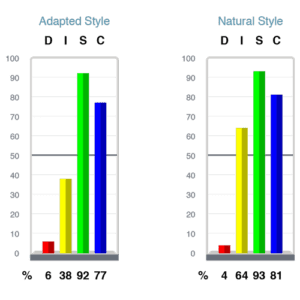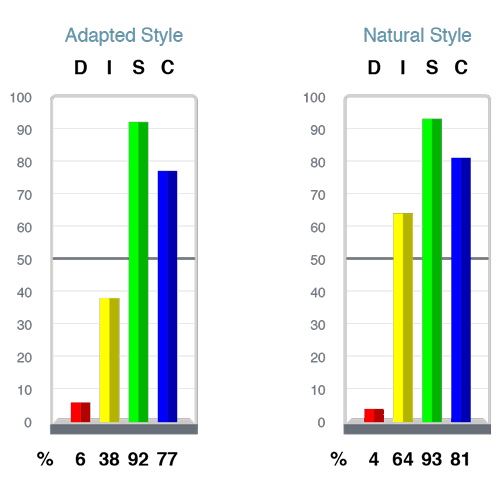Should I Adapt or Be Myself? A Dilemma Reconciled 
Greetings Highroaders,
“Should I adapt to my colleagues or remain authentic to who I am?”
This is a question I’ve been asked many times in my career of helping companies work successfully across difference. This issue troubles most of us at one time or another.
Many of my clients take the DISC assessment, a tool that measures four behavior styles (Dominance, Influence, Steadiness, and Compliance). Participants might compare assessments with colleagues and discover that they are polar opposites in their communication. Inevitably they ask this question: Adapt or remain authentic?
Sometimes we need to choose one or the other. We might adapt in cases where an important client relationship is at stake, or a sensitive issue comes up with a colleague. We may need to remain authentic and stand our ground when our core values are threatened or an ethical issue confronts us.
Most of the time, however, we do not need to choose between these two; we need to reconcile them. This means creating a third option.
Imagine one person’s DISC assessment reveals that he is heavily task oriented. His colleague’s DISC profile shows a strong preference for relationships. What is the third option? That is reconciliation, or thinking about how each side can help the other side become a better version of themselves. Intercultural scholar Fons Trompenaars suggests using the word “through” to generate ideas for reconciling opposites.
For example:
- THROUGH an in-person kick-off meeting in the first week of our team’s formation, we make our ongoing weekly team meetings more efficient.
- THROUGH being efficient with our time in our projects and meetings, we leave room for trust-building activities.
- THROUGH slowing down and listening more actively, I can make faster and more accurate decisions.
When we use our imagination, rather than choose between adapting and being authentic, we can become adaptively authentic. Authenticity is not static; it evolves and changes as we grow and learn. Navigating different communication styles allows us to widen our repertoire and expand the potential ways we can be effective with other people. Through our efforts, we meet and exceed our goals.
Do you want to know how DISC can help you lead effectively, build team cohesion, and engage clients? Contact us at [email protected]!





Nice Blog Vicki!